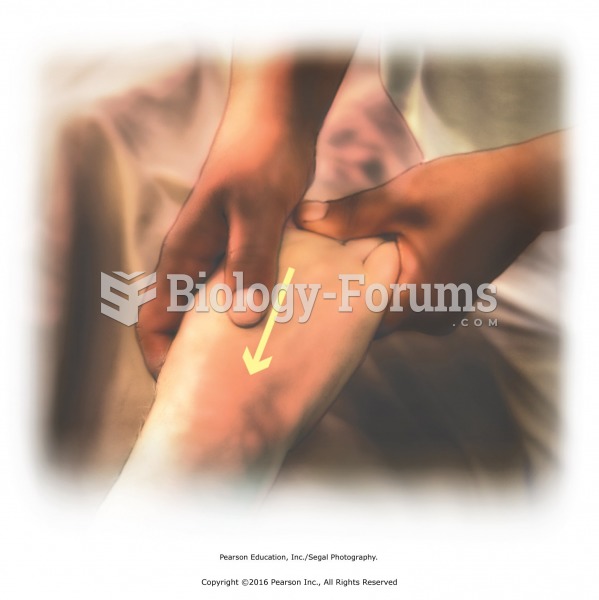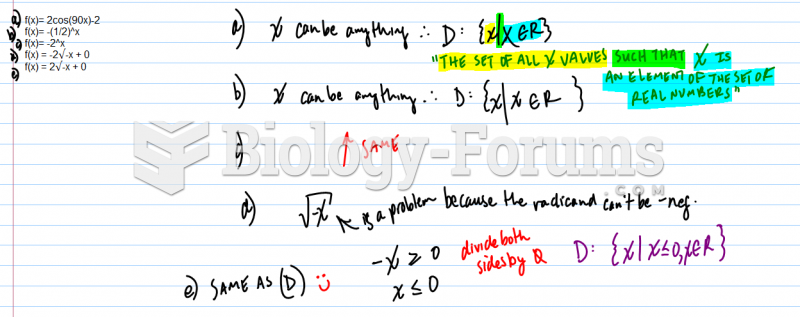|
|
|
When Gabriel Fahrenheit invented the first mercury thermometer, he called "zero degrees" the lowest temperature he was able to attain with a mixture of ice and salt. For the upper point of his scale, he used 96°, which he measured as normal human body temperature (we know it to be 98.6° today because of more accurate thermometers).
A cataract is a clouding of the eyes' natural lens. As we age, some clouding of the lens may occur. The first sign of a cataract is usually blurry vision. Although glasses and other visual aids may at first help a person with cataracts, surgery may become inevitable. Cataract surgery is very successful in restoring vision, and it is the most frequently performed surgery in the United States.
The B-complex vitamins and vitamin C are not stored in the body and must be replaced each day.
Immunoglobulin injections may give short-term protection against, or reduce severity of certain diseases. They help people who have an inherited problem making their own antibodies, or those who are having certain types of cancer treatments.
The term bacteria was devised in the 19th century by German biologist Ferdinand Cohn. He based it on the Greek word "bakterion" meaning a small rod or staff. Cohn is considered to be the father of modern bacteriology.
 Apply circular friction to the left side of the neck along cervical muscles with the fingertips of ...
Apply circular friction to the left side of the neck along cervical muscles with the fingertips of ...
 Effleurage clockwise to abdomen. Place palm over palm, and apply effleurage in a circle around the ...
Effleurage clockwise to abdomen. Place palm over palm, and apply effleurage in a circle around the ...





